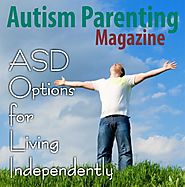-
About
- About Listly
- Community & Support
- Howto
- Chrome Extension
- Bookmarklet
- WordPress Plugin
- Listly Premium
- Privacy
- Terms
- DMCA Copyright
- © 2010-2025 Boomy Labs

Listly by Autism Parenting Magazine
Finding “just the right gift” for a child with autism spectrum disorder (ASD) is not always a simple task. Due to the various sensitivities and needs that many children with autism may have, it’s important to carefully consider what kinds of gifts are a good fit.
Download our FREE guide at:
https://www.autismparentingmagazine.com/gifts-for-children-with-autism-guide/
Source: https://www.autismparentingmagazine.com/gifts-for-children-with-autism-guide/

Finding “just the right gift” for a child with autism spectrum disorder (ASD) is not always a simple task. Due to the various sensitivities and needs that many children with autism may have, it’s important to carefully consider what kinds of gifts are a good fit.

I could see Calib beginning to go into hysterics. He began to pace and flap his arms as he continued to tell me it was, in fact, not time for lunch. First grade always went to lunch at 11:30am.

You probably have a favorite memory from the holiday season that brought your family together. Finding an activity that everyone can enjoy and participate in, especially when you have a child with autism, can be challenging. Depending on your child’s abilities or their sensory aversions, the typical holiday activities may be out of the question.

You just got off the phone with your cousin. She’s excited about her holiday dinner and wants you and your family to come. It’s a tempting offer. She’s cooking holiday favorites, inviting people you haven’t seen in ages and buying small gifts for all the kids.

Your son hasn’t been starting conversations with others about his recent summer vacation, so you instruct him, “Tell Grandma about your vacation.” When he responds with unimportant or unexciting details, you find yourself guiding him, “Tell Grandma about the big water slide you went on.”

I had the pleasure of attending Fill-A-Need’s first fundraiser, Bridge the Gap Gala, on November 16th at the Trump National Golf Club in Bedminster, NJ for an evening of fun and fundraising. The venue was astounding but equally astounding was one mother’s dedication to help plan for the future of children on the spectrum. Katie Cancro, the Founder of Fill-A-Need Foundation, has the determination and heart the autism community needs to help build a better future for our children. Katie’s son has autism and when she realized how few supports are in place after high school for people on the spectrum, she set out on a mission to build a place where each individual can focus on their own strengths to find work they are passionate about in an effort to bridge the gap between high school and finding work. I was moved and amazed that a mother with three children found time to start such a feat.

Today there are more options than ever before for adults and young adults living independently with autism. Programs and centers have opened in many different places across the United States, giving many people access to their benefits, assistance, and services. The programs focus on helping adults of all ages with autism acquire the necessary skills to live and enjoy an independent life.

Your son hasn’t been starting conversations with others about his recent summer vacation, so you instruct him, “Tell Grandma about your vacation.” When he responds with unimportant or unexciting details, you find yourself guiding him, “Tell Grandma about the big water slide you went on.”

In his memoir, teacher Hank Smith shares his valuable insight on raising of a child on the spectrum. Sticks and Stones tells the story of Ian, a boy who was diagnosed with autism thirteen years ago. The story takes place at the beginning of the current wave of children being diagnosed with autism, before there was any public awareness of this disability, before educators discovered ways to help these challenging kids in the classroom, and before effective treatments were available. While Sticks and Stones takes the reader through the grim realities of autism, it is also filled with love and humor as Ian and his parents, Hank and Michelle, find ways to cope with the challenges, and appreciate the gifts, that come with Ian’s autism.

When I think about why I like to help others, I really cannot think of a single defining moment when it all started. It just happened. I really love to volunteer my time to help others, or just teach people new things. It makes me feel good about myself and is meant to make someone else feel good, too.
